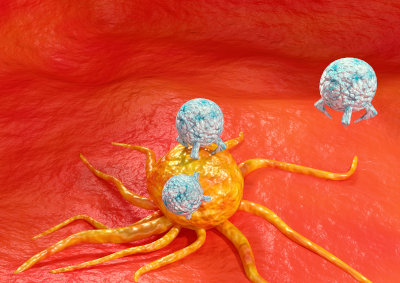 As with many 2020 scientific meetings and events, the Society of Toxicology (SOT) Annual Meeting was canceled as an in-person event due to the ongoing COVID-19 pandemic. However, SOT has organized a robust offering of online content as a replacement. While nothing beats the energy of a live scientific meeting, the virtual format is available to a broader audience of attendees globally. Visit the 2020 SOT Virtual Meeting home page to learn more about all the great offerings.
As with many 2020 scientific meetings and events, the Society of Toxicology (SOT) Annual Meeting was canceled as an in-person event due to the ongoing COVID-19 pandemic. However, SOT has organized a robust offering of online content as a replacement. While nothing beats the energy of a live scientific meeting, the virtual format is available to a broader audience of attendees globally. Visit the 2020 SOT Virtual Meeting home page to learn more about all the great offerings.
Live Webinars
SOT is sponsoring a series of webinars over the next few months to stand in for canceled scientific sessions and continuing education courses. The full webinar schedule is available on the SOT website.A sample offering of what is available follows:
The continuing education course "Harnessing the T Cell for Cancer Immunotherapy: A Course on T Cell Redirection" (paid registration required) reviews T cell redirection as a cancer immunotherapy strategy and addresses how to assess safety liabilities for these therapeutics before first-in-human clinical trials. The course will cover CAR T cells, T cell receptor (TCR) T cells, CD3 bispecifics, and other drug classes.
Immune-mediated adverse drug reactions can be severe and may be hard to predict with traditional preclinical animal models. Both small and large molecule drugs can induce these adverse reactions, including immune checkpoint inhibitors used in cancer treatment. The June 30 webinar "Immune-Mediated Adverse Drug Reactions: State-of-the-Art Learnings from Preclinical and Clinical Drug Development" features several presentations, including information on the use of humanized preclinical animal models for mechanistic studies of immune-mediated adverse drug reactions as well as the use of preclinical models for immunogenicity assessment of biologics.
"Advances in CRISPR-Cas9 Tools and Applications for Toxicologists" (paid registration required) provides an update on the latest advances in CRISPR-Cas9 gene editing and discusses CRISPR-Cas9-based genome-wide screens to gain an understanding of a toxicant's effect.
Virtual poster session
Beyond the webinar sessions, more than 600 PDF posters are now available to view and download.Carcinogenicity assessment using transgenic rasH2™ mice is featured in several online posters, including:
- A retrospective analysis of transgenic mouse carcinogenicity studies for pharmaceuticals in Japan - In the International Council for Harmonisation of Technical Requirements for Pharmaceuticals for Human Use (ICH), the S1 (carcinogenicity study) Expert Working Group proposed a prospective evaluation period to verify the possibility of waiving rat 2-year carcinogenicity studies. This evaluation will begin with an integrative analysis of Weight of Evidence (WOE) factors such as pharmacological action, genotoxicity, and tumor-related lesions in rat 6-month toxicity studies. Meanwhile, the ICH S1B guidelines outline how mouse studies are also required to assess carcinogenic potential of a pharmaceutical in addition to the rat studies. According to the current S1B guidelines, medium-term transgenic (Tg) mouse carcinogenicity studies can be used instead of the long-term mouse studies. Depending on the ongoing ICH S1 prospective evaluation, the rat 2-year study can be waived. In such cases, the Tg mouse study will increase its weight. In this context, a comprehensive survey on Tg mouse carcinogenicity studies should be important in revising S1 guidelines. This poster describes the retrospective analysis of roughly 40 carcinogenicity studies using Tg mice for pharmaceuticals approved in Japan since 2007.
- Evaluation of the carcinogenic potential of Baclofen - Baclofen, a selective gamma-aminobutyric acid - B (GABA-B) receptor agonist, has emerged as a promising drug for the treatment of alcohol dependence. However, its carcinogenic potential has not been evaluated. This poster describes the testing and results of the carcinogenicity testing using rasH2™ mice.
- Thymic Lymphomas in a Six-Month CByB6F1/Tg rasH2™ Mice Carcinogenicity Study with a ROR Inverse Agonist, BMS-98625 - This inverse agonist is anticipated to have the potential for broad clinical utility in the treatment of a variety of immune-related disorders. rasH2™ mice were used to assess the risk of thymic lymphoma, and results indicate it will be a significant challenge to advance a RORγt inhibitor program for chronic treatment of autoimmune diseases.
- Carcinogenic Susceptibility Comparative Study on rasH2™ Mice Produced by Two Breeding Facilities - The PDF poster can be downloaded here. The abstract indicates that carcinogenic conformity of rasH2™ mice derived from replaced breeding colonies in two facilities was confirmed in this study. Furthermore, as a result of a comparison of a previous study on tumor incidences, the authors noted that the carcinogenic susceptibility of the rasH2™ mouse strain has been well maintained for more than two decades.
While the live meeting is a mainstay in receiving updates on toxicology advances, SOT has done an excellent job of adapting to the environment we are in today. The 2020 SOT Virtual Annual Meeting provides access to very valuable information for preclinical research.






.jpg)

.jpg)
.jpg)
.jpg)
.jpg)





.jpg)
.jpg)


.jpg)



.jpg)




.jpg)

.jpg)
.jpg)






